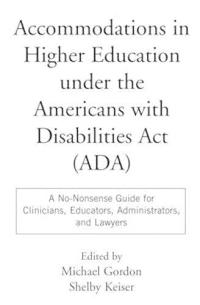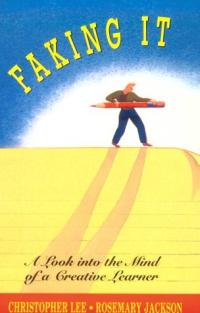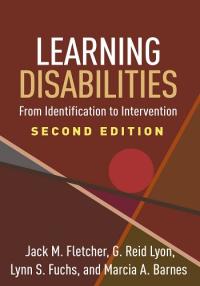
Accommodations in Higher Education Under the ADA: A No-Nonsense Guide for Clinicians, Educators, Administrators, and Lawyers
This practical manual offers essential information and guidance for anyone involved with ADA issues in higher education settings. Fundamental principles and actual clinical and administrative procedures are outlined for evaluating, documenting, and accommodating a wide range of mental and physical impairments.








